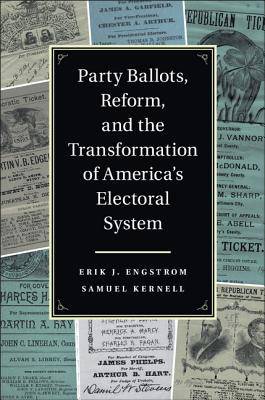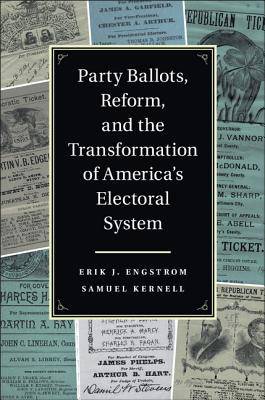
- Afhalen na 1 uur in een winkel met voorraad
- Gratis thuislevering in België vanaf € 30
- Ruim aanbod met 7 miljoen producten
- Afhalen na 1 uur in een winkel met voorraad
- Gratis thuislevering in België vanaf € 30
- Ruim aanbod met 7 miljoen producten
Zoeken
Party Ballots, Reform, and the Transformation of America's Electoral System
Erik J Engstrom, Samuel Kernell
Hardcover | Engels
€ 172,95
+ 345 punten
Uitvoering
Omschrijving
This book explores the fascinating and puzzling world of nineteenth- and early-twentieth-century American elections. It examines the strategic behavior of nineteenth-century party politicians and shows how their search for electoral victory led them to invent a number of remarkable campaign practices. Why were parties dedicated to massive voter mobilization? Why did presidential nominees wage front-porch campaigns? Why did officeholders across the country tie their electoral fortunes to the popularity of presidential candidates at the top of the ticket? Erik J. Engstrom and Samuel Kernell demonstrate that the defining features of nineteenth-century electoral politics were the product of institutions in the states that prescribed how votes were cast and how those votes were converted into political offices. Relying on a century's worth of original data, this book uncovers the forces propelling the nineteenth-century electoral system, its transformation at the end of the nineteenth century, and the implications of that transformation for modern American politics.
Specificaties
Betrokkenen
- Auteur(s):
- Uitgeverij:
Inhoud
- Aantal bladzijden:
- 246
- Taal:
- Engels
Eigenschappen
- Productcode (EAN):
- 9781107050396
- Verschijningsdatum:
- 27/10/2014
- Uitvoering:
- Hardcover
- Formaat:
- Genaaid
- Afmetingen:
- 150 mm x 231 mm
- Gewicht:
- 476 g

Alleen bij Standaard Boekhandel
+ 345 punten op je klantenkaart van Standaard Boekhandel
Beoordelingen
We publiceren alleen reviews die voldoen aan de voorwaarden voor reviews. Bekijk onze voorwaarden voor reviews.











